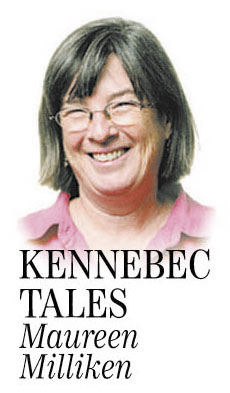This column was initially going to start off with a string of ethnic slurs.
It was going to be a really long list of all the ugly names for people that have been invented to demean and marginalize over the centuries.
It would have been offensive and probably shocking to most readers.
But, those words being what they are, we couldn’t comfortably print them in the paper.
The point would have been that as offended and shocked most of you were to read those names, why are so many of us are still OK with “Redskins”?
Many news outlets no longer use “Redskins” when referring to the NFL football team — the most common use of it now is in pieces like this that examine the continued use of it despite long-standing pleas by Indian groups that it’s as offensive to them as the string of words we won’t print here are to other groups.
Despite that, the issue has been rumbling around Wiscasset again after the town renamed a road Redskins Drive in “honor” of the longtime school mascot that was dumped in 2011 in favor of Wolverines.
A group of residents of the road want to rename it Micmac Drive, in honor of one of Maine’s native tribes. Selectmen are going to consider the change next week.
Don’t hold your breath that the select board of Wiscasset is suddenly going to become enlightened.
Members of the board, which voted 3-1 in favor of Redskins Drive in the first place, say they’ve gotten little negative feedback and they don’t understand what the fuss is all about.
Selectman Ben Rines told the Portland Press Herald last week that he’s gotten high-fives and been told “it’s about time” after the decision to go with Redskins Drive.
“I have nothing against the Indians,” Selectman Bill Barnes told the Press Herald. “They’re probably the best people ever in this country.”
He said he doesn’t find the name offensive — and told the Press Herald only one person told him after the vote that she did.
Rines agrees. “I think of it as part of my school days,” he said. “I’ve never heard it used offensively and wouldn’t put up with it.”
Um. Really?
Penobscot Nation President Kirk Francis told the Wiscasset board in a letter that the name refers to the practice of collecting a bounty on the skins of Indians who were killed — scalps, called redskins — many of them women and children.
“The history and origin of this word is a particularly painful one for the Wabanaki,” Francis wrote in the letter, as reported by the Portland Press Herald.
Francis and fellow Indians have begged the board, as they have others in Maine, to stop using that name and others that demean and offend.
When it’s determined that a slur is a slur, everyone, whether they feel the pain that that group feels or not, stops using it.
So it’s not clear what Rines, Barnes, and all the high-fivers and it’s-about-timers aren’t getting.
We hear the word “tradition” used a lot to support the views of those who want to brandish racist symbols, all the while saying they’re not racists. It’s used in Wiscasset. It used by owners and fans of the Washington Redskins. It’s used by those who support both.
The same argument is used for those who fly a Confederate flag. It’s hard enough to imagine what white Southerners aren’t getting about the impression they give with their support of it (I’ve never seen a black Southerner support this “tradition”). It’s even harder to understand what non-racist point is being made when someone flies it from his pickup in Maine — a bizarrely common sight.
That flag made a big comeback during the Civil Rights era, when segregationists used it as their racist symbol.
Now there’s some tradition for you.
It doesn’t take much education to know something that once was OK — even tradition! — in the past is now obviously a really bad idea or worse.
Of all those bad names we won’t print the worst are for people of color. There seem to be a lot more, and a lot uglier names for Latinos, Asians and blacks than for, say, the Irish or Polish.
There’s a reason for that. We control the institutions that demean, marginalize and keep those groups down.
We also wrote the history that downplayed a lot of the shameful “tradition” that has caused whole races to continue to struggle and suffer for centuries.
It took me seconds to reel off a list of ethnic slurs. Despite a personal vocabulary that comes down on the salty side of 20th century stevedore, I was appalled I could come up with so many so fast.
The good news is someone a generation younger than I am probably wouldn’t recognize some of them. Names that were considered OK in normal conversation 20 or 30 years ago are now embarrassments.
There’s nothing wrong with feeling affection for the old traditions of school.
But how can anyone compare the loss of the “tradition” of a high school mascot nickname to the scars left by the slaughter and marginalization of human beings?
If we don’t understand the difference, didn’t learn from history and its lessons while we were in school — watered down as it was — then what does our school mascot even symbolize? Our ignorance?
Long after the world forgets what the name of the mascot at Wiscasset High School was, or the name of a neighborhood street, or even the name of an NFL team, it will remember how we treated our fellow human beings.
Maureen Milliken is news editor of the Kennebec Journal and Morning Sentinel. Email her at mmilliken@centralmaine.com. Twitter: @mmilliken47. Kennebec Tales is published the first and third Thursday of the month.
Send questions/comments to the editors.


